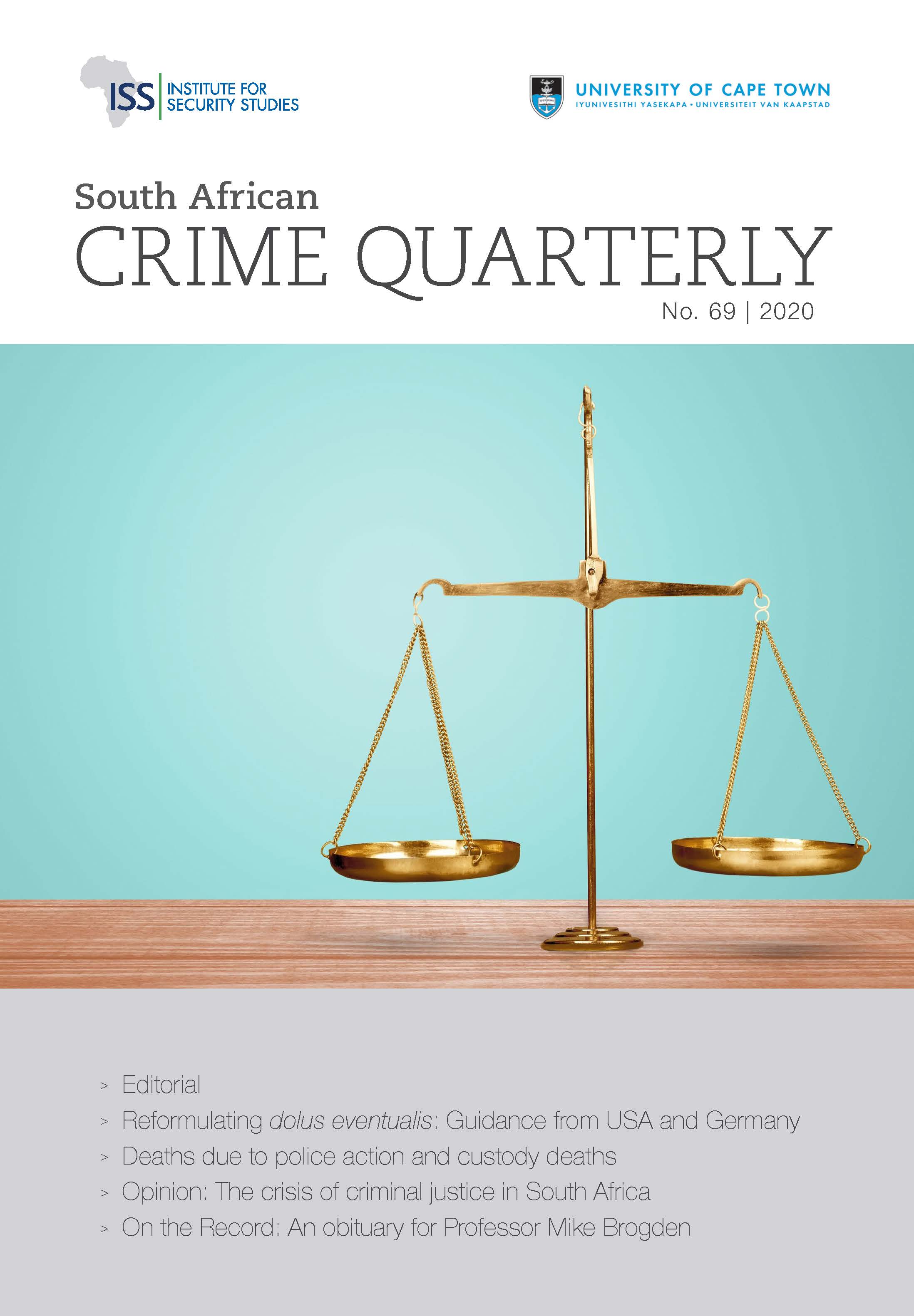Poaching of marine living resources: Can the tide be turned?
DOI:
https://doi.org/10.17159/2413-3108/2020/i69a8351Abstract
Certain marine living resources of South Africa are under severe threat from international organised crime syndicates in conjunction with local fishers. These criminal activities erode respect for the rule of law and lead to socio-economic degradation and the proliferation of gangsterism. The current government approach as custodians of the resources is to maximise the return from confiscations. SAPS are not using the full power of the law to address poaching of marine living resources, particularly abalone, as a priority crime and do not allocate their resources commensurate with the value of the commodity. As a country that is beleaguered by fisheries crime, overfishing and exploitation, South Africa must take a tough stance and should pursue criminal organisations with all the power that the state can muster. It must also ensure that national fisheries resource management is improved so that local communities can benefit. The implementation of a conforming strategy would be socially and politically unpopular, but the future benefits will outweigh the outlay.
Downloads
Downloads
Published
Issue
Section
License
Copyright (c) 2020 Author and Institute for Security Studies/UCT

This work is licensed under a Creative Commons Attribution 4.0 International License.
SACQ is licenced under a creative commons licence (CC BY) that allows others to distribute, remix, tweak, and build upon your work, even commercially, as long a they give appropriate credit, provide a link to the license, and indicate if changes were made. They may do so in any reasonable manner, but not in any way that suggests the licensor endorses you or your use.
Copyright for articles published is vested equally between the author/s, the Institute for Security Studies and the Centre of Criminology (UCT).




.png)